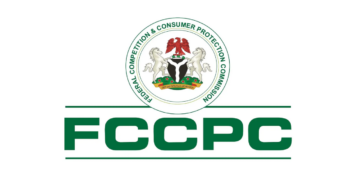The stakeholders in the leather industry have strengthened their commitment to upgrade the sector, which it said occupies a very strategic position in the development of Nigeria’s economy.
This was the focus of a the Ponmo summit 2023 which held in Lagos with aim of discouraging the consumption of hides and skin (Ponmo) in Nigeria.
They were of the opinion that leather and leather products could reach $17 billion if properly harnessed.
In his welcome address, the chairman, National Steering Committee on Strategic Implementation Plan of
Leather and Leather Products Policy in Nigeria, Prof. M. K. Yakubu, said that the state of the economy coupled with the devastation witnessed by the pandemic in 2019 to 2021, informed the country’s decision to diversify the economy. This approach is aimed at complimenting the nation’s dwindling revenue from petroleum and petroleum products. Being a major productive sector, next to the petroleum industry in terms of foreign exchange earnings, leather is considered critical to achieving this diversification objective.
According to him, Nigeria has a comparative advantage in livestock production. However, the Leather industry has hitherto witnessed a decline in its performance because of the long absence of a sector-specific policy.
But with heart full of gratitude to God, on Wednesday 31st October, 2018 the Federal Executive Council (FEC) under the Chairmanship of our immediate past President, Muhammadu Buhari, approved the first ever stand-alone National Policy on Leather and Leather Products in Nigeria.
He noted that another milestone was achieved in Leather Sector on Tuesday 6th July, 2021 when the then vice president, Professor Yemi Osinbajo, personally launched the National Leather and Leather Products Policy Implementation Plan at Yar’adua Centre, Abuja. I am very sure most of you witnessed the occasion. We now have a Leather Policy and its Implementation Plan in Nigeria. These feats wouldn’t have been possible but for the collective and collaborative efforts of all the stakeholders involved in the leather sector. Therefore, permit me to appreciate once again all of you for producing this Leather Policy and its strategic Implementation Plan.
Recall that one of the strategies in the National Leather and Leather Products Policy Implementation Plan is the discouragement of the consumption of raw hides and skins, Ponmo by providing incentives for producers, processors, and marketers of Ponmo.
Consequently, the National Steering Committee on Leather and Leather Products Policy Implementation Plan in Nigeria, the zenith decision making body on Leather matters in Nigeria, in collaboration with Lagos State Government and other key players in the leather industry concluded arrangement to incorporate the affected persons into other sources of livelihood.
“I am sure this will ensure extensive stakeholders buy-in and less opposition to the habit of consumption of hides and skins, which has been depriving the nation of multi-million dollar potential revenue from marketing leather and leather products. I, therefore, urge you to pay serious attention to this PONMO Summit to fast-track the implementation of this Strategy.
“The Summit will focus on Psychological Perspectives on Issues, Challenges and Way out of Consumption of Hides and Skins; Nutritional Values and Health Implications of Ponmo as well as Socio-Economic and Environmental Impacts of Ponmo in Nigeria. Also, the Summit will centre on the Provision of Incentives and Incorporation of “Ponmo” Dealers into the Leather Value Chain and other businesses.
“I am pleased to announce that NILEST has made some modest remarkable achievements in the implementation of this Leather Policy by establishing Nine (9) Extension Centres across the six (6) geo-political zones of Nigeria. In the South West, we have a Centre in Iwaro-Oka in Ondo State and Ilara-Remo in Ogun State to extend the services of the Headquarters in Zaria to Leather Value Chain Actors and general populace.
“NILEST is championing the campaign to discourage the consumption of raw hides and skins (Ponmo) in Nigeria. If all Leather stakeholders are involved in this campaign, there will be enough leather to produce leather products in the country. In the area of security, the Institute is collaborating with the Military for research, development, design, and production of military footwear for the Armed Forces.
“The Institute has embarked on some strategic research initiatives geared towards production of leather processing assistants. There is a research group looking into the production of refined vegetable based tanning agents; another group is working in the area of recombinant DNA for the production of enzymes for leather processing; another is exploiting our diverse flora resources as substitutes for salts as biocides for the preservation of hides and skins,” Yakubu said.
He however maintained that this Ponmo summit is part of the actualization of the National Leather and Leather Products Policy Implementation Plan.
“As you are already aware, if this Leather Policy is fully implemented in Nigeria, it will bring about increase in industrial growth, economic diversification, job and wealth creation, the nation’s Gross Domestic Products (GDP), productivity, local and export market. It will also enhance reduction in capital flight, promotion of Science, Technology, and Innovation (STI), and strengthen intra/inter relationship between private, public and international leather organizations. This Summit is therefore intended to address the shortcomings that are always encountered in the Tanning Industries. “





